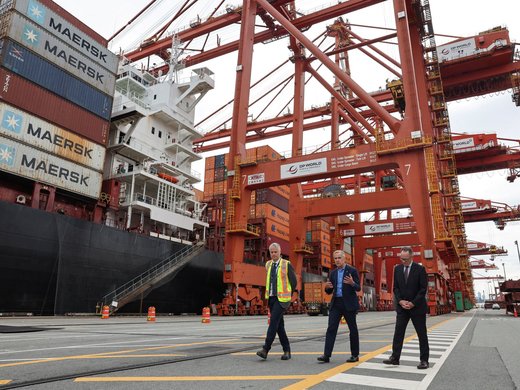A version of this op-ed was published at The Hill Times. Reprinted with permission from The Hill Times.
The United States government’s retreat from global engagement — marked by cuts to the US Agency for International Development, the World Health Organization, universities, research, and now the State Department — poses an unprecedented threat to international security. For Canada, the timing couldn’t be worse. Years of underinvestment have left our defence posture unprepared for today’s volatile world, and promises of submarines 15 years from now do little to address the urgent security challenges we face in the immediate and near term.
Canada’s government confronts a dual challenge: redefining its defence priorities in light of current and escalating threats to our sovereignty; and contributing more credibly to the collective security of our North Atlantic Treaty Organization (NATO) allies, particularly as US disengagement and geography leave us increasingly exposed. Ironically, this crisis comes at an opportune moment. Our current defence posture is adrift, constrained by declining recruitment, ageing equipment and an already outdated defence policy that lacks clarity and commitment. Allies beyond America are raising questions about Canada’s true commitment to collective defence.
Meanwhile, with Washington turning its gaze toward the Indo-Pacific, NATO expects its members to assume more responsibility. Trump-era criticism of “free-riding” spurred a scramble among members to meet NATO’s two percent GDP target, with the number of compliant states jumping from six in 2021 to 23 in 2024. Now, with calls to raise the bar to five percent, Canada must rethink its contribution — not just by spending more, but also by investing smartly and strategically.
This posture must reflect the indistinguishable nature of national security and economic security, and the present-day pillars of democratic sovereignty, which must be fiercely safeguarded. This requires a baseline military readiness capability — underpinned by dual-usage technology investments — which focuses on protecting Canadians, our vulnerable Arctic borders and key assets on which our future prosperity depends. These assets include our data, as well as the artificial intelligence (AI), cybersecurity and cloud computing infrastructure on which our society and economy function. The ability to secure and govern this asset ecosystem is no longer an option. Data loss is strategic loss.
Now, with calls to raise the bar to five percent, Canada must rethink its contribution — not just by spending more, but also by investing smartly and strategically.
Beyond the physical protection of Canadians and infrastructure, this country’s defence must also prioritize psychological resilience against adversarial efforts to disrupt democratic cohesion. With foreign interference, community manipulation and authoritarian tactics — including media suppression, historical revisionism and intimidation — now visible even in democratic allies, protecting freedom of thought and expression, defending the information environment and upholding democratic discourse under pressure must become defence priorities. Sweden’s defence model — which includes a dedicated Psychological Defence Agency — offers a compelling blueprint for institutionalizing information security in democratic societies.
Canada will not lead through mass or hard power. But we can lead through strategic utility and differentiation. This starts with geography — our greatest untapped advantage.
Canada sits at the frontier of a new geostrategic theatre: the Arctic. Securing northern passageways under NATO control, anchored by a national ocean governance framework, is crucial. But our value to the alliance should go further. We must pair Arctic security with investment in AI and quantum computing, positioning Canada as a hub for NATO data storage, retrieval and analysis. With a cold climate that reduces thermal disruptions, abundant and affordable clean energy, and a stable political environment, Canada is uniquely suited to house a climate-resilient digital infrastructure aligned with data sovereignty principles. If we start developing the North, other countries will invest in capability building and digital infrastructure projects, reinforcing our strategic position and advancing collective security and technological leadership within NATO.
In parallel, we must unlock our distributed STEM (science, technology, engineering and mathematics) excellence. Canada’s top-tier and inclusive education system, and skilled immigrant pipeline, can support a non-redundant, complementary and NATO-aligned pan-Canadian innovation web, training the next generation of leading AI scientists for both Canadian and allied priorities, supporting the government’s plans to develop a domestically owned high-performance supercomputing system.
This triangle — geography, energy and education — offers a foundation for a national defence contribution built not on legacy systems, but rather on capabilities that matter in the twenty-first century: a secure Arctic, a dual-use AI and quantum ecosystem, and a talent pipeline for NATO’s future innovators.
This approach would make Canada not just a better ally, but also a strategic partner of consequence — with a defence posture that reflects the real sources of national power and vulnerability in today’s world, and which offers unique capabilities that others cannot easily replicate. This can provide a uniquely Canadian pathway to not only meeting NATO’s two percent benchmark, but far exceeding it in relevance and impact.




